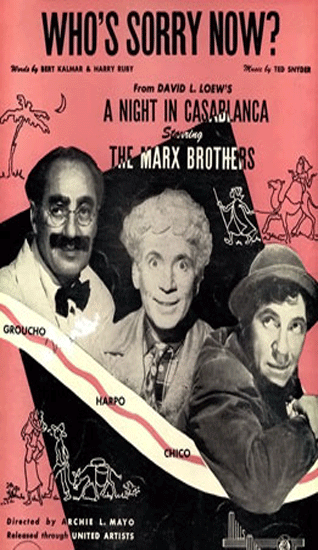Columnists
Who's Sorry Now?
by I.J. SINGH
Prime Minister Manmohan Singh of India has been making the news again and not always for the good that he might attempt.
Just weeks ago, he was in Canada for the Economic Summit of the leaders of the free world. He wowed everyone - the world's leaders and the press alike - with his competence and modesty, putting India and a Sikh face front and center almost as a poster child for the new global reality.
That is fantastic. As a Sikh, I appreciate it very much.
But his Sikh face also rankles Sikhs, including me. His unthinking advice to Sikhs to put 1984 behind them and move forward was disingenuous at best. Coupled with this, his exiguous apology offered in the Indian Parliament for the troubles of the 1980's, welcome though it was, becomes doubly inadequate.
I have to add that for the Indian culture, his public apology was a most remarkable, almost a mindboggling step, and my appreciation for it almost boundless.
There is a caveat, however.
The lack of any justice for the decade of the 1980's, despite his second five year term in office as India's undisputed leader, remains a knife in the back. To add salt to the wounds, his government has pointedly rejected amnesty for Sikhs who reacted angrily to the shoddy pogrom of attempted genocide against them. This is so in spite of the fact that similar or worse behavior by other Indian minorities has been forgiven.In spite of his apology, many Sikhs still continue to languish in prisons or are blacklisted without adequate redress.
But he did briefly acknowledge the mass killings of innocent Sikhs and was the first Indian political leader of any mettle to do so. True his was an anemic statement, but why does it bother us so?
A lesson that I learned 50 years ago on coming to the United States was about one fundamental structural pillar of American culture. It is a tripod of three interlocking and interdependent expressions: Please, Thank you, and Sorry; clearly I am speaking of the larger hinterland, not of the fast moving New York area which is a universe of its own and where there is little time, leisure or place for these few words in the lexicon.
I say this knowing full well that the regional differences among North Americans are fast disappearing and that after so many years I, too, am a New Yorker. But those of us who come from India outdo the New Yorkers in neglecting these common courtesies of life. These three sentiments are total strangers to us in the Indian culture in which we grew up. I suppose being a
New Yorker of Indian descent makes it a double whammy of sorts.
For Sikhs, not to have these words close to their heart and on their lips is even stranger; Sikhi is an introspective existence rooted in humility. Don't these three - 'Please', 'Sorry' and 'Thank you' -- speak of such a mindset? Then why are we so adamantly sealed off from them?
Look around at the wider world in which mea culpas abound even when they are no better than pro forma - well crafted but rarely satisfactory, full or honest. Admittedly, it is not easy to offer an honest apology from the heart. It is even more confusing when it is a corporate sin that is not easily laid at an individual's door. Often the apology is crafted by public relations experts and cleared by a bevy of high-priced lawyers; this means that the soul has been extracted from the apology.
The resulting phrases often seem lifeless, pale, tasteless and anemic - indeed like chewed over cardboard. One thing it does is take the 'mea' out of the mea culpa and separate the two parts of a powerful emotion. The world gives us many examples of apologies of which very few sound honest; mostly, they seem self-serving.
Lisa Belkin of the New York Times recently offered a compendium of such meaningless pablum; I use some examples cited by her to lend substance and support to my case today.
I will leave to readers to parse the "Apologia" of Socrates that Plato has given to posterity.
In recent weeks there was Congressman Joe Barton who first had the mindlessness to cravenly apologize to BP (the oil behemoth) for the criticism by President Obama of the company's massive oil spill, and then Barton did an about turn a day later to apologize for the apology. Such is the power of raw politics.
Keep in mind the apologies of Richard Nixon on Watergate, Bill Clinton around the time of his impeachment hearings, and Governor Mark Sanford of South Carolina on his lustful adventures on the "Appalachian Trails." Think of Tiger Woods after his fall from grace for his sexual peccadilloes.
Referring to the oil spill that almost destroyed the Gulf Coast, the head of BP Oil, Tony Hayward said in his apology: "I am sorry it happened, sure, but I am not saying it was anything we could have prevented." Clearly, here he started with an apology and ended with a non-apology. In essence he took back what he gave.
The classic non-apology that comes to mind is the comment of Rajiv Gandhi after the death of his mother, Indira Gandhi. Referring to the wanton killing of several thousand innocent Sikhs in the capital, Delhi, and several cities across India, while the police and army stood by, he said "When a big tree falls, naturally the earth shakes." In other words, such massive killings of its own citizens aided and abetted by the government are a natural and expected consequence in the circumstances. To be fair to Rajiv Gandhi, he wasn't even trying to apologize; this happened in the Indian cultural milieu where public apologies are rarer than hen's teeth and he felt no need for one - even though he was the prime minister of the country and the mayhem occurred on his watch.
Jennifer Robbennolt, a professor of law and psychology at the University of Illinois, conducted an experiment in which a cyclist was said to have injured someone. Several hypothetical statements were then presented and people were polled if, based on a particular statement, they would accept a settlement.
If there was a full apology ("I am so sorry you were hurt. The accident was all my fault. I was going too fast and not watching where I was going") 73 percent responded that they would.
When only a partial apology was offered ("I am sorry that you were hurt, and I really hope that you feel better soon") the number fell to less than half -- 35 percent.
So what does a successful apology have to be to turn out successful?
There has to be an expression of genuine and unmistakable regret, an assumption of responsibility and a proposal for some measure of redress. If either of the three is missing, the approval numbers head south.
A few further examples should suffice to nail my point: Sometimes apologies come from people who are not directly or personally responsible for the injustice or injury. For example, Prime Minister David Cameron of Britain recently offered an unconditional apology for the massacre of the Irish by British troops that occurred some years earlier, much before his time.
Also in the 1990's President Bill Clinton offered an apology for the wrongs done to Blacks more than a century earlier.
Both were accepted and appreciated; they did not ignite people anew. Why? Because people saw honesty and sincerity in the apology and the attempt to heal festering wounds.
Similarly, two years ago, Prime Minister Kevin Rudd of Australia successfully apologized for the injustice against the Aborigines of that country.
The gold standard of a corporate apology is generally seen as the one by the makers of Tylenol in 1982. The chief executive of the company stepped up, took the blame, recalled the defective product and created tamper proof packaging. This showed an enviable sense of ethics and, not surprisingly, turned out to be good business sense as well.
The classic example of a clueless non-apology is the oft heard "If I have hurt anyone I am sorry." Such a conditional apology grates because it is a clumsy cloaking of denial and non-acceptance of any responsibility. It is a non-sequitur that shows an absolute lack of awareness of any wrong done. Whenever proffered it deserves to be summarily dismissed.
If there were to be a gold standard of a non-apology, it would have to be the conniptions in the Roman Catholic Church on trying to produce and sell the world a confusing mix of acknowledgment and denial, apology and containment of the sex scandal that is rocking the institution - while the church continues to circle the wagons.
If there exists a parallel in the political world it would have to be the pseudo-apology to the Sikhs by Prime Minister Manmohan Singh, although his hands may not have been dirty then. Why do I say that? Because his words were step one in an apology and that was a grand gesture, without fault and much appreciated; step two - reconciliation - starts with atonement and the creation of a national atmosphere where the wrong done becomes visible; and step three then has to focus on justice.
Without the second and third steps or stone walling on them, any apology quickly degrades to a non-apology or pseudo-apology that robs the victim of the opportunity to forgive; and that is an essential element to the healing process.
I would have to dub Manmohan Singh's apology and the myriad never ending list of inconclusive investigative panels as exercises in casuistry and sophistry. An apology and actions carefully calibrated to the political realities of the day represents no moral awakening; it is this sense that lies exactly at the core of a meaningful and productive apology that is missing here.
A parallel: The New York Times columnist, Maureen Dowd, dubs the Catholic Church's convoluted apologies and explanations on the sexual scandals as denial and best labeled as situational penitence. And this applies equally precisely to 1984 and its aftermath in India.
Simply stated, a good public apology has four elements: regret, responsibility, a plan of action and transparency of process. I expect any spokesperson that is going to try to explain a transgression the size of the Holocaust, BP's oil spill, the Catholic Church's handling of its sex scandals or India's genocidal murder of Sikhs in and around 1984, to come wearing a hair shirt.
My mind shifts gears to the old classic "Who's Sorry Now," a song that has had many incarnations from its earliest recording in1923, to one by Elvis Presley in 1958 and then finally a rebirth as the signature song of the 1950's singer, Connie Francis.
Even though I can well imagine the cultural and political constraints under which he operates but, like this golden oldie, will Manmohan Singh's apology continue to haunt us? The killings of 1984 occurred 26 years ago. With apologies to Nero, it seems that Delhi fiddles (or should I say diddles?) while we burn. There are a zillion wrongs in life for which we never said "sorry." Let not a full apology remain a missed opportunity.
It is rightly said that a dab of honey will catch more bees than a pot of vinegar. Says the Guru Granth: "Miṯẖaṯ nÄ«vÄ« nÄnkÄ guṇ cẖangâ–«Äâ–«Ä«â–«Ä á¹¯aṯ" ("Sweetness and humility, says Nanak, are the essence of virtue and goodness" - [GGS:470]).
Guru Granth also emphatically reminds us: "Bẖulaṇ aná¸ar sabẖ ko abẖul gurÅ« karṯÄr" (Everyone is fallible; only God and Guru are not" - [GGS:61]).
ijsingh99@gmail.com
July 23, 2010
Conversation about this article
1: Kanwarjeet Singh (Franklin Park, New Jersey, U.S.A.), July 23, 2010, 1:31 PM.
Dear I.J. Singh ji, well said. I have always felt that a sorry should reflect what you mean and not be superficial. Due credit to Manmohan Singh ji for his sincere apology. However everything he has done (or not done) or said after the apology has put us as Sikhs to shame, in fact to an extent it would have been better he had not apologized. When he apologized, we felt some closure - we definitely knew that justice would not be forthcoming but it was a closure nonetheless. Then came the remarks which shook our belief in Dr. Singh - he claimed terrorism in Sikhi, 'Forget 1984' and then being exceptionally quite on the matters of Tytler and Sajjan Kumar getting election tickets. I think the actions taken following the apology (like makers of Tylenol did) reflect the depth of sincerity in the apology. An apology is not sincere if one does not followup and make sure the action leading to the apology is never repeated. The recent incidents and statements of Dr. Singh have convinced us that India will now use a new weapon in its arsenal - the weapon being a heartfelt apology after every incident such as a riot, a wrongful death of an innocent person, etc. - but do nothing! The 'sorry' gives these people a new proverbial escape route. In my humble opinion I would rather not have someone say sorry if they cannot guarantee that the offence is not repeated. Unfortunately Dr. Singh seems to be catching onto the qualitites of a politician when it comes to sincerity. Perhaps ten years of politics brings in these qualities. Having been critical of Dr. Singh, I think it would be better if we train ours guns (proverbially of course) towards our so called leaders - what have they done for the 1984 victims? Why would we even think of the other people serving us when we have ourselves abandoned our people?
2: Royal Ludhiana (Chandigarh, India), July 24, 2010, 8:18 AM.
I totally agree with the last line by S. Kanwarjeet Singh stating that 'we have ourselves abandoned our people'. The Congress govt. played its part in the 1984 Sikh genocide and till date they have done nothing to hang the culprits involved in the act. The only thing the Congress has said: "SORRY". And the so-called "guardians of Sikhi and Punjab", the Akali Dal, they also did nothing to fight for justice. In fact, both the parties are doing their best to turn Punjab into a graveyard. "Jud Singh de puggh Punjab vich hi laahen lag jave ... fer uss Punjab da ko-n wali waris?"






